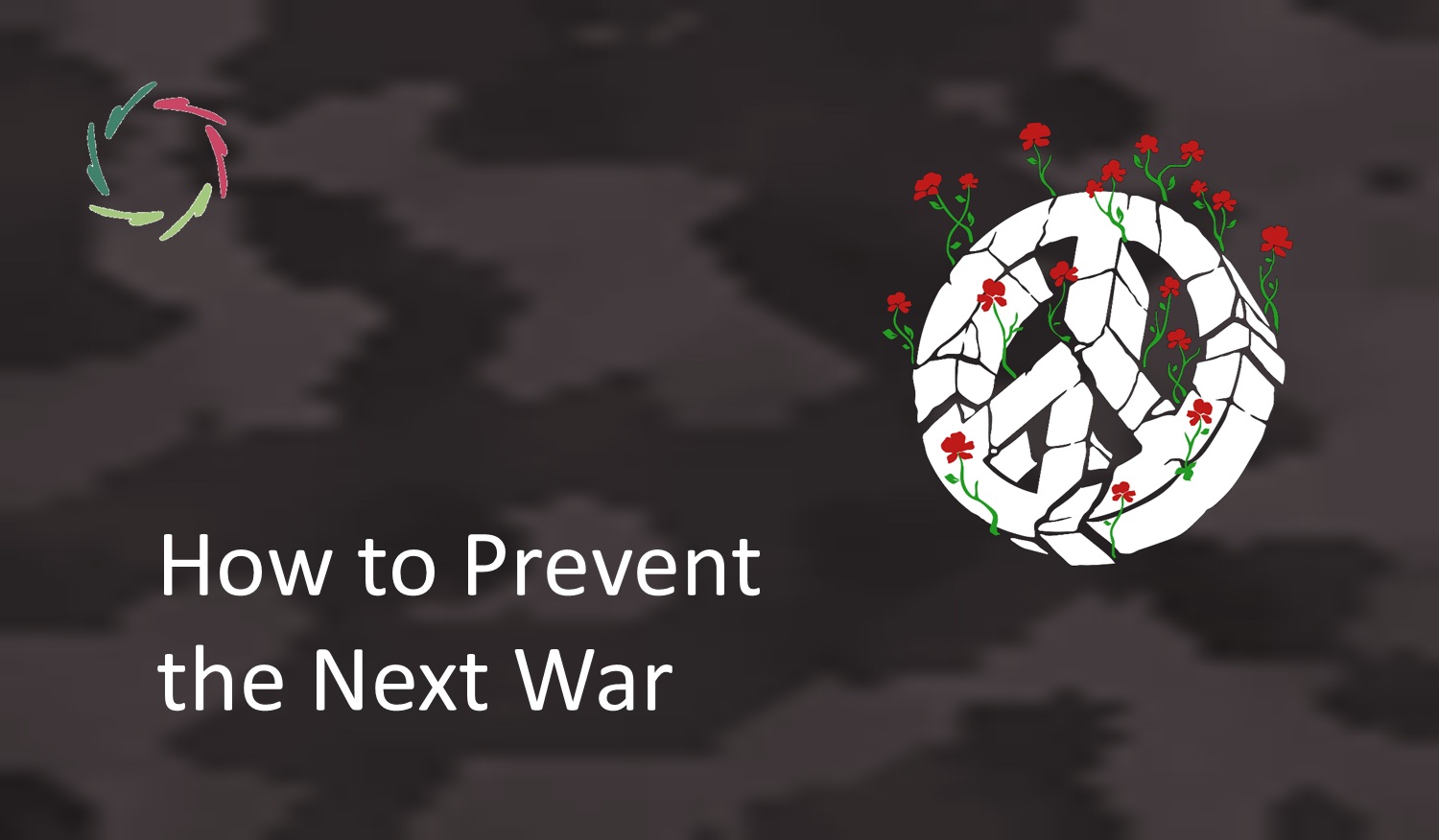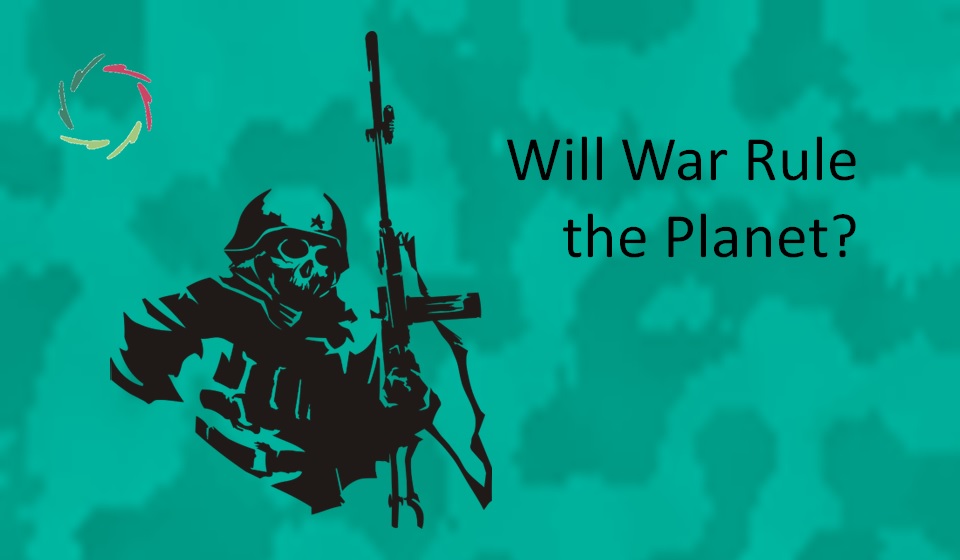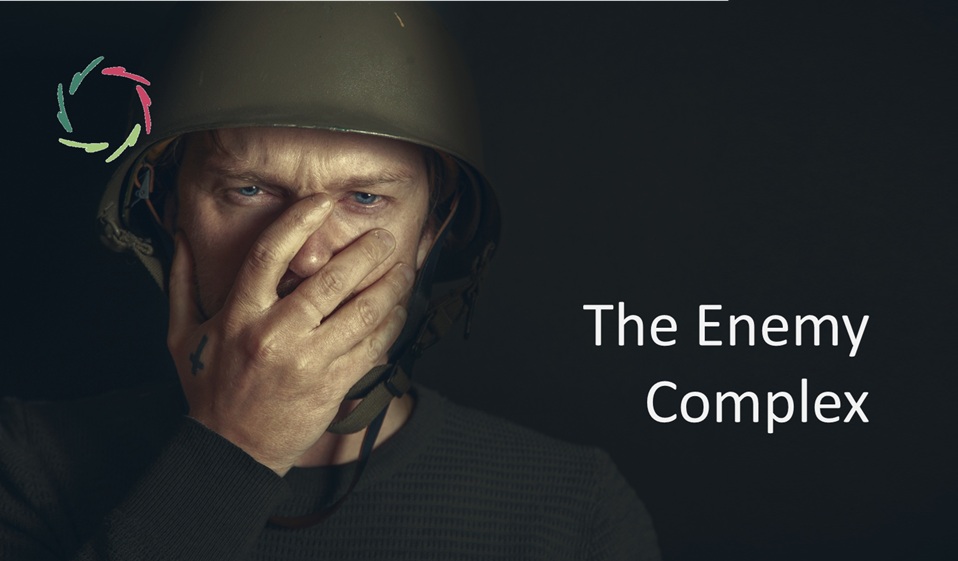How to Prevent the Next War

The question of how to prevent the next war has long preoccupied humanity, with answers often focused on diplomacy, treaties, and the avoidance of conflict. While these are vital, they may not be enough.
History has shown that a temporary absence of conflict isn’t the same as lasting peace. To create a world where peace is resilient and enduring, we need to cultivate depth and wisdom at every level ― personal, relational, and societal.
To prevent war, we must move beyond superficial, reactive approaches to conflict.
Like antifragility, which thrives when systems grow through challenges, lasting peace requires that we look beneath the surface and engage with conflicts constructively. When we address the ‘wars within’ ourselves – the fears, desires, and insecurities that drive our reactions – we’re less likely to project these conflicts onto others.
This depth involves recognizing that most conflicts, personal or global, arise from unresolved internal tensions. When we cultivate self-awareness, we start to see these conflicts not as enemies to be defeated but as opportunities for growth and understanding. Depth equips us to respond with insight rather than reflex, fostering resilience that goes beyond quick fixes and temporary alliances.
Building Inner Strength is essential for creating a lasting foundation for peace.
This is about a resilience that arises from engaging with life’s challenges openly and Compassionately ― allowing us to face our fears without needing to turn others into adversaries. When people cultivate Inner Strength, they approach conflicts with clarity and calm, seeing them as opportunities for mutual growth.
A peace grounded in Inner Strength doesn’t waver under pressure because it is built on a foundation of personal and collective resilience. Instead of relying on the transient unity of a common enemy, Inner Strength fosters unity that is adaptable, understanding, and deeply rooted.
Fostering antifragile societies
These grow stronger through the constructive engagement of internal differences. Antifragile societies thrive on diversity, open dialogue, and respectful conflict resolution. Rather than repressing differences, they embrace them, seeing them as necessary for growth and adaptation.
This approach aligns with an Aurelian view of growth from within, where societies don’t depend on external enemies to maintain cohesion. Instead, they cultivate a unity that evolves through respectful engagement with differing perspectives.
Wisdom as a transformative force
Wisdom is essential for any society that seeks to avoid the path to war. Wisdom isn’t simply knowledge; it’s a deeper insight that allows us to see beyond immediate triggers and understand the long-term impact of our actions. Wisdom involves self-reflection, an awareness of one’s own biases, and the capacity to empathize with others.
A society that values wisdom creates space for patience, dialogue, and critical reflection. In such a culture, individuals are encouraged to consider the broader consequences of their actions, fostering a mindset that seeks understanding before conflict. This wisdom becomes a transformative force that reduces the likelihood of escalation, as people learn to view conflict as a space for dialogue rather than an inevitable road to aggression.
Preventing the next war also requires a commitment to vulnerability and empathy.
These qualities allow us to connect with one another on a deeply human level. As discussed in Daring to Be Vulnerable, true strength is found in the courage to embrace vulnerability. This kind of openness isn’t a weakness; it’s a profound strength that allows for genuine connection, breaking down the barriers that often lead to dehumanization in conflict.
Empathy grows from this willingness to be vulnerable. When societies and leaders allow themselves to be vulnerable – open to understanding others’ perspectives – they build trust and defuse tensions. Empathy thus fosters a sense of shared humanity that can prevent the cycle of animosity and retaliation that leads to war.
Developing the ‘inner diplomat’
Each of us has the capacity to be an ‘inner diplomat,’ practicing skills like listening, compromise, and self-reflection in our daily lives. Just as we cultivate antifragility by engaging with life’s difficulties, we can cultivate peace by learning to navigate small conflicts thoughtfully.
By fostering qualities of inner diplomacy – curiosity, respect, and the willingness to see things from another’s perspective – we contribute to a larger culture of peace ― a collective mindset that sees peace not as the absence of conflict but as a process that actively engages with and transforms conflict.
Depth and wisdom as the path to lasting peace
Depth encourages us to see beyond immediate reactions, addressing the inner conflicts that often drive external wars. Wisdom guides us to make choices that prioritize resilience, understanding, and the shared humanity that connects us all.
By cultivating depth and wisdom, we lay the foundation for a peace that is resilient, enduring, and self-sustaining. This kind of peace doesn’t rely on opposition or the suppression of differences; it thrives on inclusivity, inner strength, and a Compassionate engagement with life’s challenges.
Through this approach, we create a world where peace isn’t a fragile truce but a lasting state rooted in unity from within.


